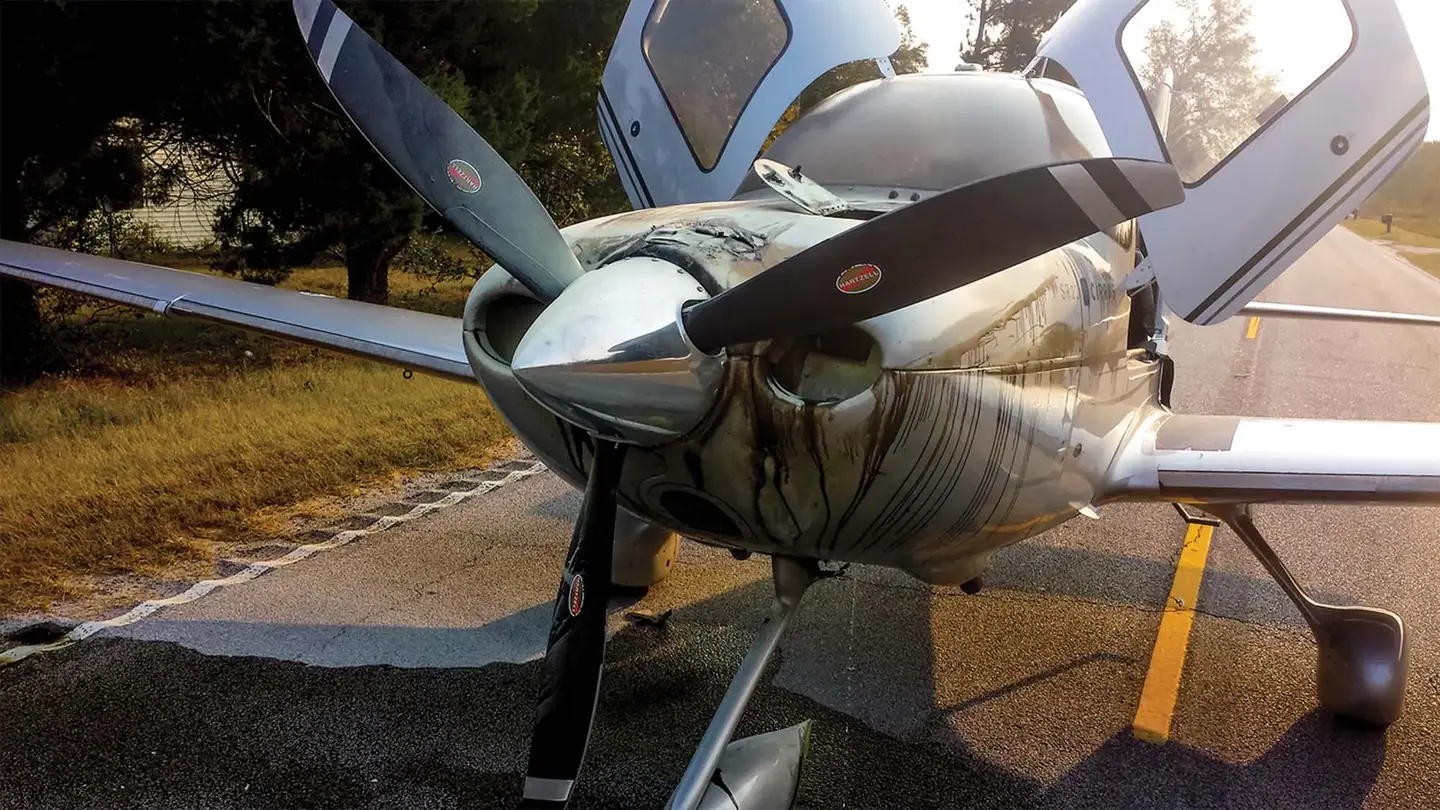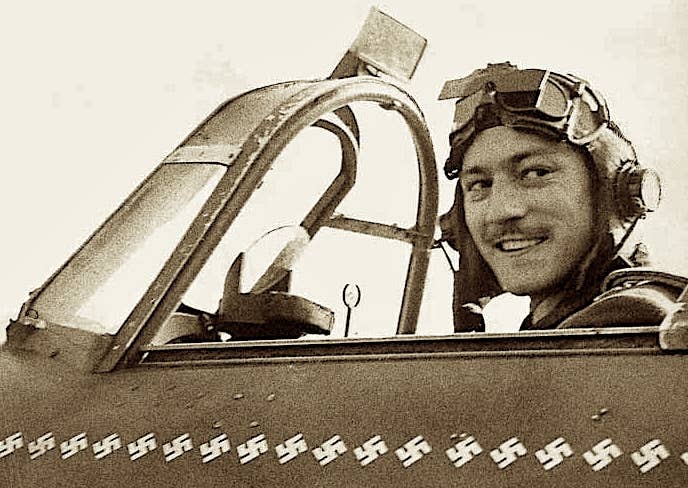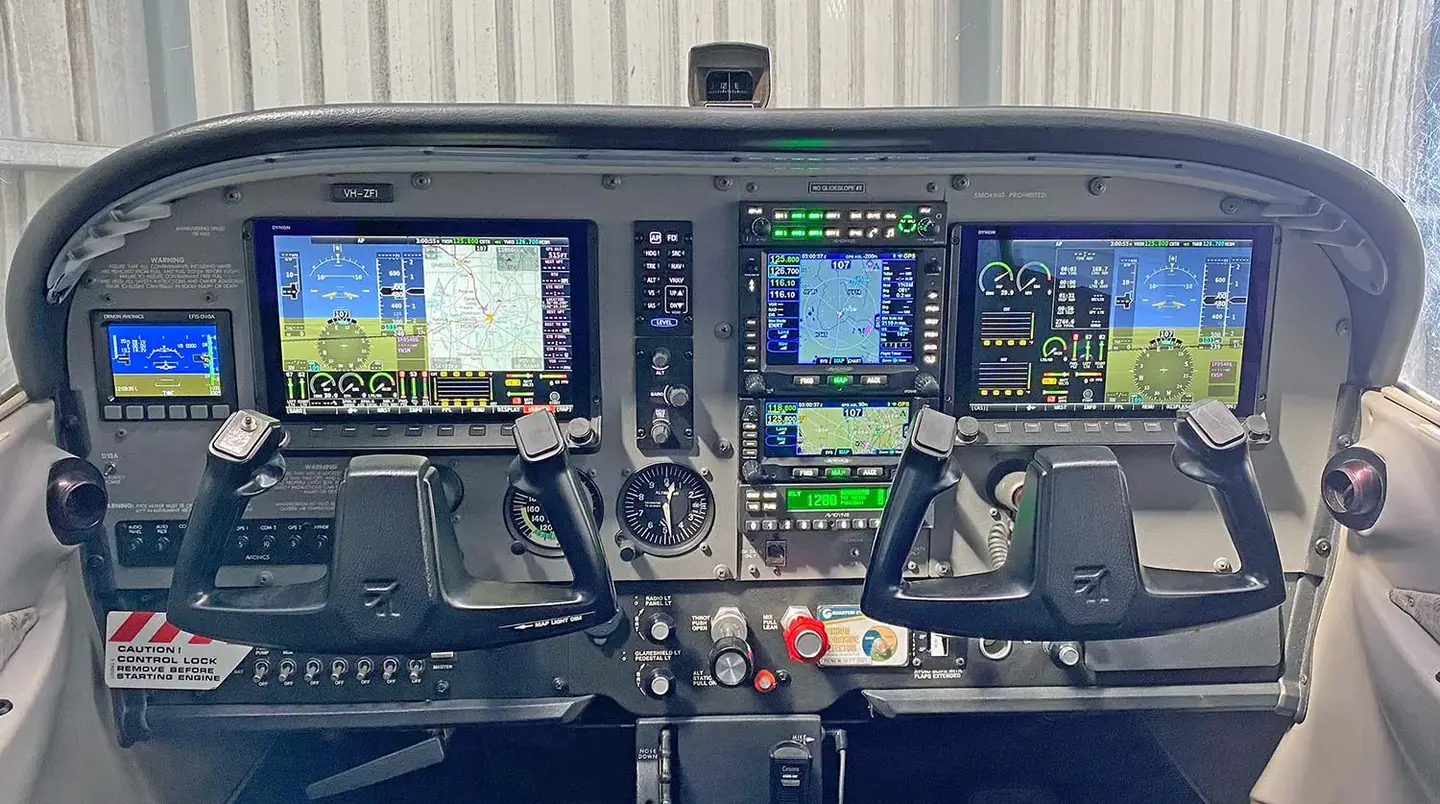Eye of Experience #50:Staying Out Front
The math is simple. If the airplane is moving along at two or three miles per minute and the pilot’s thought processes are lagging behind at about half that pace, circumstances will overtake reasoned responses and adverse consequences will result. According to AVweb’s Howard Fried, “staying out front” is crucial for all pilots, no matter what equipment they’re flying.
 We've all heard the expression "staying ahead of the airplane" but what does it really mean to each of us? To different people it may well mean different things. Rod Machado advocates that, when in IMC (instrument meteorological conditions - in cloud), a pilot should at all times have determined what are the next two things he/she is going to do. He says we should constantly be asking ourselves, "What are the next two things I'm going to be doing?" This seems a bit much, although it is an excellent idea. Perhaps keeping in mind the single next task is enough for me. I know it is plenty for my pitiful little pea brain at a time when I've got my hands full of an airplane in rotten weather. In fact, staying mentally out in front of a fast-moving flying machine requires that we pay strict attention at all times, IF or VFR. If we fail to do this we find ourselves playing "catch-up" and this invariably leads to trouble. When we are behind and playing catch-up we invariably tend to get farther behind, and each step can lead to another until we end up in a hopeless situation.
We've all heard the expression "staying ahead of the airplane" but what does it really mean to each of us? To different people it may well mean different things. Rod Machado advocates that, when in IMC (instrument meteorological conditions - in cloud), a pilot should at all times have determined what are the next two things he/she is going to do. He says we should constantly be asking ourselves, "What are the next two things I'm going to be doing?" This seems a bit much, although it is an excellent idea. Perhaps keeping in mind the single next task is enough for me. I know it is plenty for my pitiful little pea brain at a time when I've got my hands full of an airplane in rotten weather. In fact, staying mentally out in front of a fast-moving flying machine requires that we pay strict attention at all times, IF or VFR. If we fail to do this we find ourselves playing "catch-up" and this invariably leads to trouble. When we are behind and playing catch-up we invariably tend to get farther behind, and each step can lead to another until we end up in a hopeless situation.
Bob Buck, in his classic book Flying Know How, a tome that belongs on every pilot's bookshelf along with all my books (three of which can be purchased right here on AVweb), says: "Being ahead of the airplane." That's an expression we've all heard so much we're apt to toss it off without paying attention to it. But it may be the most important expression in aviation, and certainly is worth time and talk. Being ahead is pretty obvious. It's a matter of planning in advance so nothing jumps up and surprises us. "Planning" and "being ahead" are synonymous. But what do we think when we plan? It's broken down into two parts: "advance" and "what if?"
"Advance" planning is simple. You are going to fly somewhere. How far is it; how much fuel will it take to get there; and do you have all the maps and equipment to do it?
"What if" planning is different. It asks "what if ... ?" the weather ahead goes sour, or the headwind is twice what's expected, or an engine (maybe the engine) quits.
Actually, you cannot do enough "what if" planning, but let's remember not to let "what if" planning turn us into nervous Nellies. We've got to look at "what if" with cool objectiveness - as something to prepare us for eventualities, and not something to worry us. It's one of the parts of flying that cannot be ruled by emotion because, if "what if" thinking gets emotional, you'll never get off the ground - you'll be too scared! Neither will you ride in an automobile, or even get out of bed.
And on that subject, let's remember what I've often said. When emotion takes over logic and reason goes out the window, fear is the killer!
I have often been asked, "What single attribute is most valuable for a pilot to have?" My answer has been the same as Bob Buck's, but expressed in simpler terms. I simply say, "The most valuable attribute a pilot can have is the ability to anticipate what's coming up next coupled with the flexibility to change as conditions dictate."
Make A Plan And Stick To It?
 And while we're on the subject of flexibility... Several years ago, in a column on some of the bizarre things I observed while administering flight tests as a DPE (Designated Pilot Examiner), I wrote about an inflexible applicant who refused to adapt to an unforeseen situation. That incident is worth repeating here. After he gave me an excellent oral portion of the practical flight test, we went out to the airplane. The applicant performed a thorough walk-around preflight check. We started up, taxied out, and took off on the cross-country portion of the flight test. The trip, in a northwesterly direction, was planned for 4500 feet MSL. After breaking out of the traffic pattern, the applicant established the proper heading and started to climb. Directly in our path was a solid cloud deck at about 4000 feet MSL. The applicant headed straight for it, obviously intending to plunge right into the cloud. I asked, "What are you doing? Don't you see that deck in our path?"
And while we're on the subject of flexibility... Several years ago, in a column on some of the bizarre things I observed while administering flight tests as a DPE (Designated Pilot Examiner), I wrote about an inflexible applicant who refused to adapt to an unforeseen situation. That incident is worth repeating here. After he gave me an excellent oral portion of the practical flight test, we went out to the airplane. The applicant performed a thorough walk-around preflight check. We started up, taxied out, and took off on the cross-country portion of the flight test. The trip, in a northwesterly direction, was planned for 4500 feet MSL. After breaking out of the traffic pattern, the applicant established the proper heading and started to climb. Directly in our path was a solid cloud deck at about 4000 feet MSL. The applicant headed straight for it, obviously intending to plunge right into the cloud. I asked, "What are you doing? Don't you see that deck in our path?"
The reply was, "My instructor told me to make a plan and stick to it no matter what!"
At that point I took control and leveled off well below the cloud deck.
Of course we should attempt to stick to the plan we made on the ground, but we must also be flexible enough to change as circumstances dictate. And in the air, after having analyzed our options, completed the decision-making process, reached a conclusion, and determined on a course of action, we must still avoid being so locked in to that specific mind-set that we lose the flexibility to change to a better course.
And on the subject of selecting a course of action, let me say I was driving my primary instructor crazy back in 1942 by doing nothing. He'd call for a maneuver, through the gosport (speaking tube), and I'd sit there in the rear seat with the wind in my face and cogitate, thinking step by step what I was going to do. About then the stick would be vigorously whapping me on the knees as my instructor yanked it back and forth. He'd scream, "Do something, dammit!" (The insides of both my knees were bruised black and blue throughout my primary training.) Then he would quietly tell me that, when we returned to base, I should find a secluded corner of the hangar and reach down, grab myself by the ears, and pull my head out of my butt. On the ground he explained that when he called for a maneuver he meant for me to do something right now. If I did nothing, he had no way of knowing what I was going to do, but if I did the wrong thing, he could correct it. That was his job, what he was being paid to do. Indecision, he explained, is worse than wrong decision.
That's a valuable lesson that has stuck with me for these many years. Indecision is a killer. Look at the road kills. An animal starts across the road. A car is coming. The poor animal starts back, changes its mind and turns again, and then again. About then it is hit and killed, all because of indecision.
It is absolutely essential that our thinking be faster than the machine we are driving through the air at two or more miles per minute. This is what we mean by the expression "staying ahead of the airplane." If we permit it to get away from us and allow ourselves to slip behind the airplane, we are likely to find ourselves in a world of trouble. And when we start playing catch-up the situation becomes worse, and the errors compound themselves exponentially, until we find ourselves in a truly disastrous position from which there may be no way out.
No Surprises

| |
 | |
And on the subject of "out" ... As we go through the decision-making process and select the best of our available options we should always leave ourselves an out - something to do, somewhere to go if our first choice doesn't work out as planned.
We should expect the unexpected. The object is to be so well-prepared that we will encounter no surprises. If we permit ourselves to be caught by surprise when conditions change or equipment fails (perhaps an engine, or worse, the engine), we should be prepared to deal with the situation. Otherwise we are once again in deep doo doo. And that's a place we never want to be.
However, if we do find ourselves in that undesirable place, we must keep our cool. Panic is the killer. When the emotions take over (fear), reason goes out the window. I have seen pilots who, when confronted with a simulated emergency, froze to the point where they were unable to do anything at all. Remember, nothing's happening so fast you have to panic. If we have been trained properly to respond to whatever happens and we keep our cool, there is almost nothing that can happen in a general aviation airplane from which we cannot survive with little-or-no damage to the human body, or even to the machinery.
For three and a half years I commuted daily from PTK (Pontiac, MI) to DET (Detroit City Airport, Detroit, MI) in one kind of light plane or another. The route was some thirty odd miles over a heavily populated area. And I had someplace picked along every inch of the way where I could put down in case of an engine failure (when I was in a single engine airplane which was most of the time). There were two cemeteries, a race course, the fairgrounds, and two high school football fields. Yes, if flown with care, most light single engine airplanes can be landed in the space of a football field. You might bend a wingtip on a goalpost, but there will be little damage and no serious injury. Like the boy scouts, you must be prepared! You must pay attention to what's going on and not permit distractions to destroy your concentration on the job at hand.
Distractions
 And on the subject of distractions ... Of those who fly retractable gear airplanes, it is said that there are those who have landed gear-up and there are those who are going to. Personally, I haven't done it yet (and I'm not about to say that I won't), but I have tried to twice and both times were classic cases of distraction. Both times I was saved the embarrassment (and expense) by a friendly, alert tower controller. I have personally known several pilots who have committed this act, and every single case (except a couple of equipment malfunctions) involved distractions.
And on the subject of distractions ... Of those who fly retractable gear airplanes, it is said that there are those who have landed gear-up and there are those who are going to. Personally, I haven't done it yet (and I'm not about to say that I won't), but I have tried to twice and both times were classic cases of distraction. Both times I was saved the embarrassment (and expense) by a friendly, alert tower controller. I have personally known several pilots who have committed this act, and every single case (except a couple of equipment malfunctions) involved distractions.
I'm sure most of my readers have heard the old Army Air Corps story about the cadet, solo in the pattern in an AT-6 (the first retrac he's flown), who, on his final circuit, seemed to be coming in with his gear still up. His instructor grabbed the mic and shouted to him, "Lower your gear! Extend the gear, you idiot!" The cadet continued and landed gear up. His irate instructor demanded, "Didn't you hear me screaming at you over the radio to lower your landing gear?"
The cadet responded, "How the hell could I hear you over the racket the damned gear warning horn was making?"
How's that for a distraction?
In my own two cases of attempted gear-up landings the distractions were classic. In one, I was on an angling final from the southeast for runway 27 when a faster airplane called inbound on a straight-in final. I was already cleared to land, but to allow plenty of spacing I dove for the runway, looking back over my right shoulder. I never spotted the traffic. I was flying a Piper Arrow (PA-28R) with automatic gear extension, but with the power and speed I had, the automatic system wouldn't work. Just as I was starting to flare for landing, the local (Tower) controller called, "Howard, it looks like your gear is still up." I instantly popped the gear down and landed.
And this brings up one of my pet peeves. Don't call a position until you are there! The pilot in the faster airplane making a straight-on approach had called his position at a VFR check point several miles before he got there (probably as soon as he could see it). I was on the ground and had the Arrow tied down before he arrived!
The other occasion was truly classic. When training a pilot in a retractable landing gear airplane, I would occasionally pull the circuit breaker on the gear actuation system surreptitiously to see what the student would do. On this particular occasion, while administering a certification checkride in a light twin, I had pulled the circuit breaker and, on downwind, the applicant attempted to extend his gear with no result. He found and fixed the problem. Then, on short final, I said, "Look out! There's a child on the runway! Go around." The applicant upped the gear as he started to climb out, made the circuit of the pattern and came in to land without extending the gear again. I was so busy watching him that I failed to notice, but once again an alert controller caught it and saved the day for both of us. I said this was "truly classic" because I believe it to be the most common cause of gear-up landings other than mechanical failure of one kind or another.
It all boils down to mentally staying out in front of that fast moving flyin' machine, taking care of the business at hand and not permitting distractions to interfere with thought processes and responses.
Usual Boilerplate: If you have a comment regarding this column, please post it here rather than sending it to me by direct email. That way others may benefit from your input.






